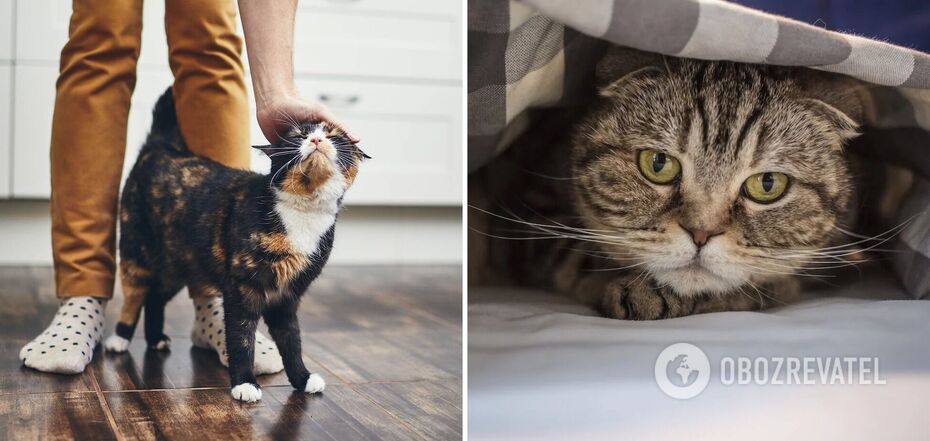Life
How cats show that they are stressed: ways to help your pets
We love domestic cats because they alleviate our daily stress with their affection and purring. But do we pay enough attention to ensuring that the furry animal itself does not suffer from stress?
According to BBC Earth, animal behaviorists led by Lydia Reinberg from La Trobe University in Melbourne, Australia, decided to study how cats get stressed, what causes it, and how to deal with it. To do this, they decided to observe the felines that ended up in a shelter. They took into account only those who were in such an institution for the first time.
How to spot stress in a cat
The test subjects were 20 cats who became pets as kittens and then ended up in a shelter. At the beginning of the experiment, the researchers determined the level of stress they were under and rated it on a scale from mild to severe. After that, the scientists monitored the behavior of each animal after it was in the shelter.
Reinberg said that the level of stress in cats in such conditions often depends on the actions of the workers. Those experimental cats that suffered from mental pressure, despite being in a very spacious enclosure, tried to hide in houses and other hiding places. Those who felt calm preferred various elevated spots.
Scientists have established a clear pattern: the more stressful the animal was, the more time it spent in the shelter. "It turned out that cats in a state of extreme stress want nothing more than to hide from everyone. And calm animals are happy to climb upstairs and watch what's happening around them from there," the scientist explained.
Another result of the study was the conclusion that cats under severe stress show great passivity. Most often, they just lie there and do nothing. According to Reinberg, stress makes the feline suppress its behavioral instincts and lie curled up for hours. Whereas a calm cat will be happy to explore the environment, look for games and activities, and interact with people and other cats.
Vocalization can also be a sign of a stress response. It turned out that those cats that meowed loudly or scratched noisily at the scratching post felt relatively well. That is, what people take for nervous behavior was the norm. Quiet cats, on the other hand, suffer from stress.
How to help your cat cope with stress
The researchers also studied how to help a cat cope with stress. To do this, they divided their experimental felines into two groups. The first group was given a lot of attention and care by the shelter staff. On the second day of their stay in the cages, the stress level of these cats began to decrease.
Thus, the scientists suggested that people can ease the emotional pressure on a cat with their rather simple actions. To do this, you need to slowly approach the animal and crouch down to its level. After that, you need to give it time to get used to your smell and only then touch it. You should talk to the cat in a calm voice and friendly tone. "It may seem trivial, but cats are sensitive creatures, they react to any small things around them," Reinberg explained.
Earlier, OBOZREVATEL told you how to understand that a cat feels happy.
Subscribe to OBOZREVATEL's Telegram and Viber channels to keep up with the latest developments.



























